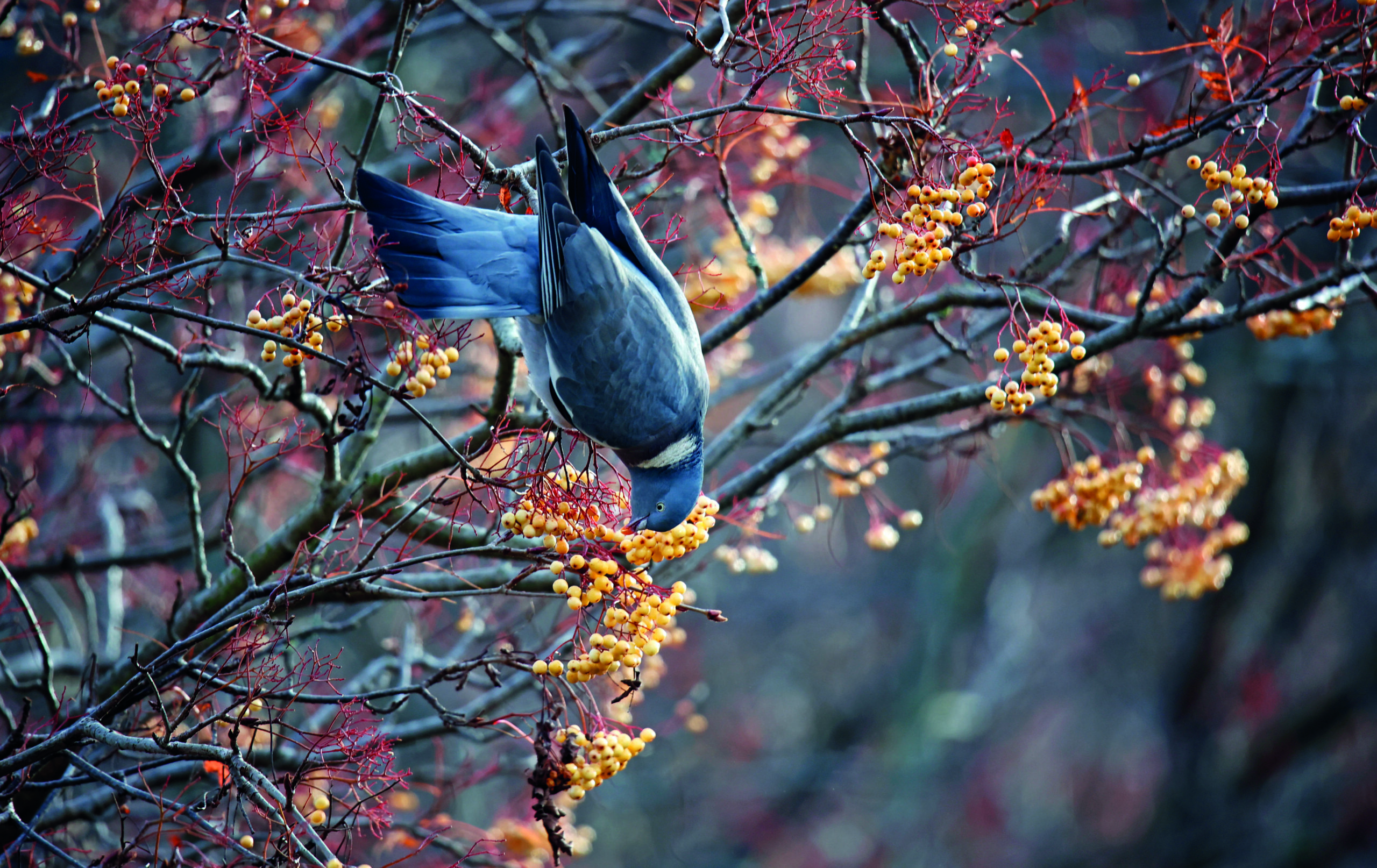Woodpigeons: pest or a quarry species?
BASC’s Conor O’Gorman looks at the case for adding woodpigeon to UK quarry lists, while keeping it on general licences for bird pest control.

I was in traffic at a busy roundabout the other day and a woodpigeon caught my eye. It was upside down on an ivy bush dangling over the roundabout wall, wings stretched wide for purchase against the traffic-polluted branches. It was straining downwards towards the prize of the last berry, perilously close to being sucked into the backdraughts of the heavy lorries trundling past.
In recent decades the versatile woodpigeon has moved into towns and cities nationwide. It took fourth place on the leaderboard of the 2023 RSPB Big Garden Birdwatch — with 750,000 birds recorded in gardens — beating the ubiquitous blackbird into fifth place.
Woodpigeons take more than their fair share of food on bird tables or in garden feeders, jostling smaller birds aside. However, you would be ill-advised relying on the general licences as a legal defence to take out a few woodpigeons in your garden and certainly not for the purpose of supplying your supper.
Last year, I wrote an article discussing the likelihood of bird quarry reviews ahead (Are we shooting wild birds sustainably?, 29 November), and the creation of BASC’s sustainable shooting framework to help provide a structured process for us to make shooting and management recommendations for quarry bird species in a consistent, evidence-based manner.
I mentioned woodpigeon as one of the bird species that could warrant being added to the quarry list in the event of a review. I received several emails from ST readers from the UK and Ireland querying this.
Crop damage
In the Republic of Ireland, woodpigeons are on the quarry list with an open season from 1 November to 31 January. Shooting them is also allowed all year round under a derogation issued annually for the prevention of serious damage to crops.
The woodpigeon is not on the country-specific quarry lists but is listed on the general licences that apply in Northern Ireland, Scotland, Wales and England. Shooting and other control methods are permitted for specific purposes, such as crop protection, but with caveats and ambiguity around consideration of non-lethal control measures, which differ between countries.
Sporting shooting and harvesting a plentiful resource of game meat are not valid purposes to shoot woodpigeon under the general licences, even though they are obviously a key motivator for recreational pigeon shooters helping out farmers.
Furthermore, as we saw in England in 2019, and in the Irish Republic in 2020, government agencies can withdraw the general licences at short notice. And as is now the case in Wales, they can remove key pest species such as magpie from all the general licences.
Canada geese are on both the quarry list and various general licences in England, Wales and Scotland, so is there not a good case to do the same for woodpigeon should the opportunity arise?
I spoke with BASC’s deputy director of conservation, Dr Matt Ellis, about this. Drawing on experience from abroad, Matt was a key driver for BASC’s sustainable shooting framework. He said: “Adding woodpigeon to the quarry list would ensure they were spared from knee-jerk licensing chaos as well as legalising one for the pot. However, it would be essential that general licences remained in place to allow year-round control measures to protect crops and other purposes.”
BASC does not have a position on this yet but, if it did, a key consideration would be what the open season should be.
In 2019, when the English general licences were revoked with three days’ notice, there were serious political considerations to get woodpigeon on the quarry list and talk of an open season from October to April. However, the crisis was resolved because the general licences were reissued and the moment passed.
If we get the opportunity again anywhere in the UK, should we try to get woodpigeon on to the quarry list, while retaining the species on the general licences for bird pest control? It would make those woodies raiding our gardens a little more cautious.








